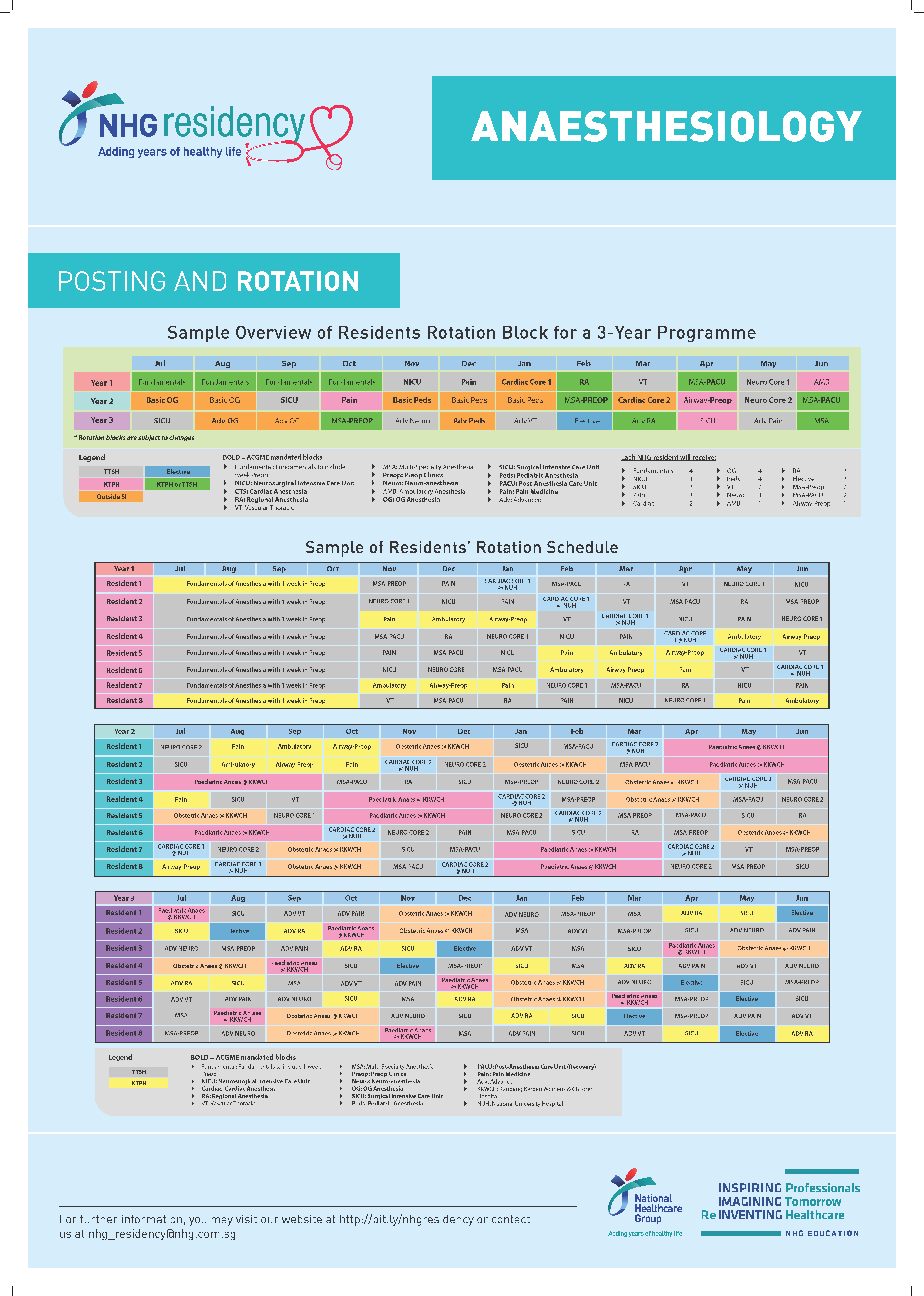Curriculum
The NHG Anaesthesiology Residency Programme is a five-year training programme comprising three years of junior residency and two years of senior residency.
The first three years of the programme aim to build a strong foundation in the knowledge, skills and experiences in Anaesthesiology. This is achieved by providing graduated clinical exposure to various subspecialties in a range of clinical settings including the operating theatre, clinic, intensive care unit and general ward. During senior residency, continued supervision and mentorship enable residents to develop their leadership skills and pursue their clinical, research and education interests.
With rotations to partnering sponsoring institutions, the programme provides residents with the exposure to a wide range of practice and a wealth of learning opportunities.
Rotations
Junior Residency
A sample rotation schedule is illustrated below:
![]()
Senior Residency:
24-month duration with at least 18 months of core anaesthesia training comprising the following:
- General Surgery
- Neurosurgery
- Orthopedic Surgery
- Radiological procedures
- Urology
- Vascular surgery
- Cardiothoracic surgery
- ENT and Eye surgeries
- Outpatient Surgery
- Obstetrics & Gynaecology and Obstetrics Epidural
- Paediatric surgery
Teaching Activities
Our teaching programme is comprehensive and rigorous. Modular teaching sessions provide a broad-based foundation in applied physiology, pharmacology and subspecialty knowledge. More in depth case-based discussions, journal clubs, evidence-based reviews, and morbidity and mortality meetings are also attended by all our residents.
Intensive examination-based tutorials with viva and OSCE sessions are conducted by experienced physician faculty to provide additional examination preparation.
Our physician faculty have shared their expertise in the region through conducting subspecialty courses. Among others, there are the TTSH Neuro Anaesthesia course, BASIC course for intensive care medicine and Difficult Airway workshop.
Simulation has been utilised to develop well-rounded clinicians adept at technical aspects of the specialty, as well as having skills such as, professionalism, good interpersonal communication, leadership and collegiality. Each resident undergoes regular formative assessments matched to core competencies to ensure systematic progression. As the resident progresses in training, non-clinical skills in teaching, education, mentorship and supervision are also simultaneously developed through the interaction with junior residents, nurses, and medical students.